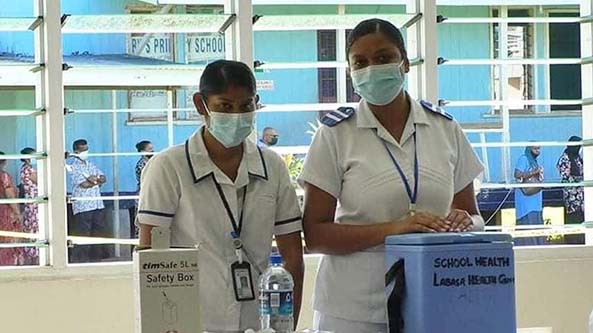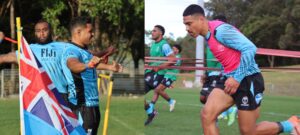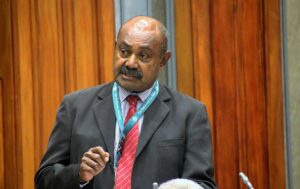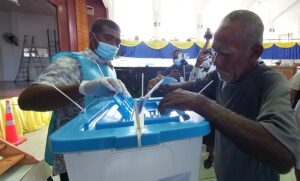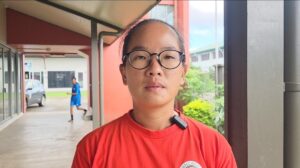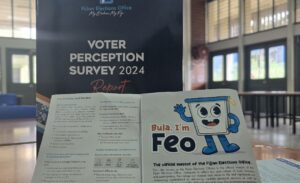Fiji’s opposition parties’ says the Ministry of Health needs to be upfront in their updates and education of parents and/or guardians on progress and outcomes of kids’ vaccination rollout to empower them to make learned decisions about their kids’ getting the jab if they have not already.
Responding to Dr Ifereimi Waqainabete’s ministerial statement in parliament today, SODELPA and National Federation MPs Salote Radrodro and Lenora Qereqeretabua said government’s no jab no job, and no jab no benefits policies after having made public assurances that it was not mandatory does not reassure parents who fear that it will resort to the same tactic for children.
In addition Qereqeretabua said the lack of information on COVID-19 vaccination adverse events among the adult population also fuel parents and/or guardians fear and hesitancy to sign up their children for vaccination.
“There have been nil consultation between schools and parents and guardians as the primary stakeholders in this event,” Qereqeretabua said. “The public has no idea about how many of these adverse events or injuries are happening from this COVID-19 vaccination in a fully publicly available database similar to the US has not seen adverse event reporting system database. Is this requirement not set out in the ministry’s 2013 National Medicinal Products Policy?”
The ministry, in some of their daily COVID-19 updates recently, has been providing information on side effects of jabs on children which is largely similar to that experienced by parents, but Qereqeretabua says this is not enough.
“The ministry has made minimal effort to inform individuals with serious underlying medical conditions under the forced No Jab No Job that they can apply for vaccination exemption if endorsed by their doctor. Has it done so for children? In hindsight it seems to be more about the numbers and less about do no harm. I would urge the minister to tread very cautiously with the rollout vaccination for children, prior and informed consent for parents or guardians must be paramount.”
Qereqeretabua said the ministry should also be encouraged to carry out more localised research on lessons learnt and findings based on Fiji’s COVID-19 experience, things such as natural immunity, vaccine hesitancy and whether demographics such as ethnicity, food, cultural, religious, education level and poverty status have some bearing on the infection rate and severity of the disease in the different communities.
Radrodro recommended that the minister present a plan in parliament showing the duration of the vaccination deployment to children, awareness drives and education initiatives for parents to allay fears that parents may have, as well as how COVID-safe measures including physical distancing and mask wearing, will be observed in schools.
“To be able to make well informed decisions about their children being vaccinated, and these are important questions. Because we already we have this policy by the government, no jab no job, no jab no benefits for our senior citizens, so minister for health, is there going to be a policy, and minister for education on no jab no school for our children. It is vital that a plan is presented in this house to inform the parents,” Radrodro said.
In a statement late last week, Permanent Secretary for Health Dr James Fong had alluded to a group being set up comprising health and senior education officials who have been tasked to carry out an audit of schools to determine whether they have the capacity to adhere with COVID-safe protocols.
The taskforce have been given until the first week of November to carry out the needful, and make the necessary changes to ensure these measures are in place by start of classroom lessons.
Vaccination of children between the ages of 15 and 17 years, with the Moderna vaccine, started in designated venues in the central, northern and western divisions today.

